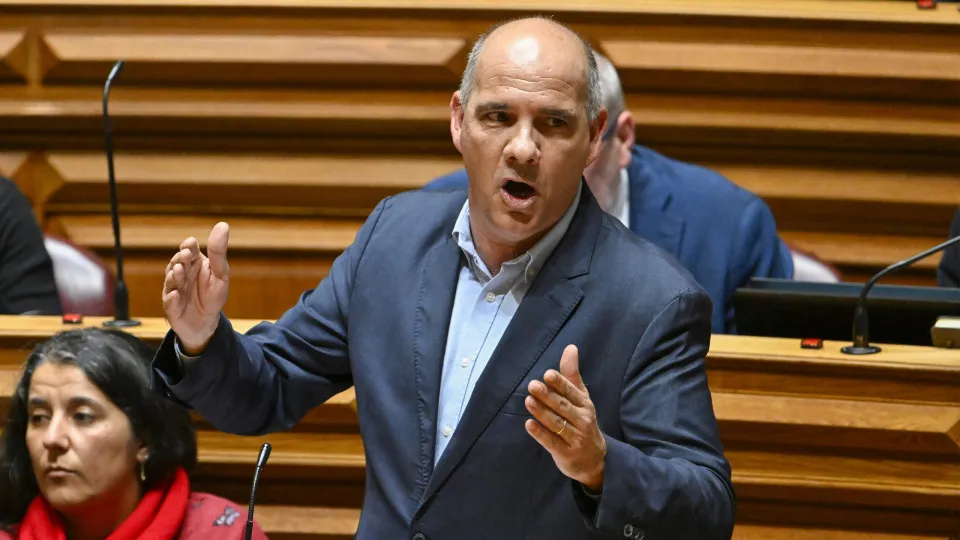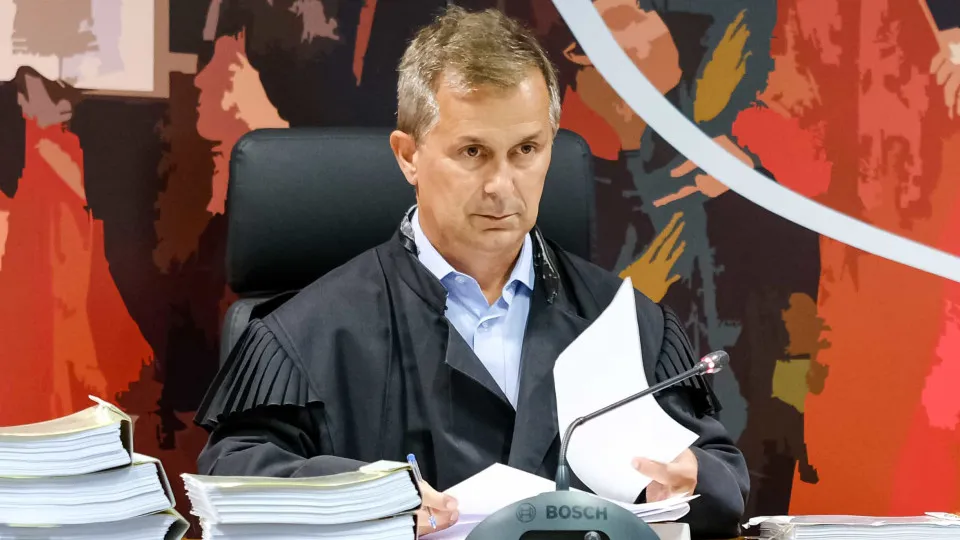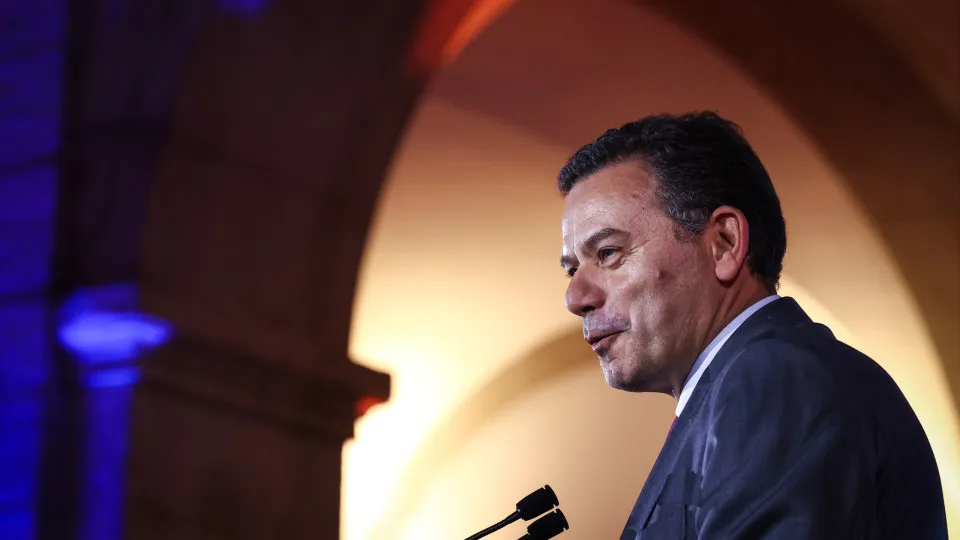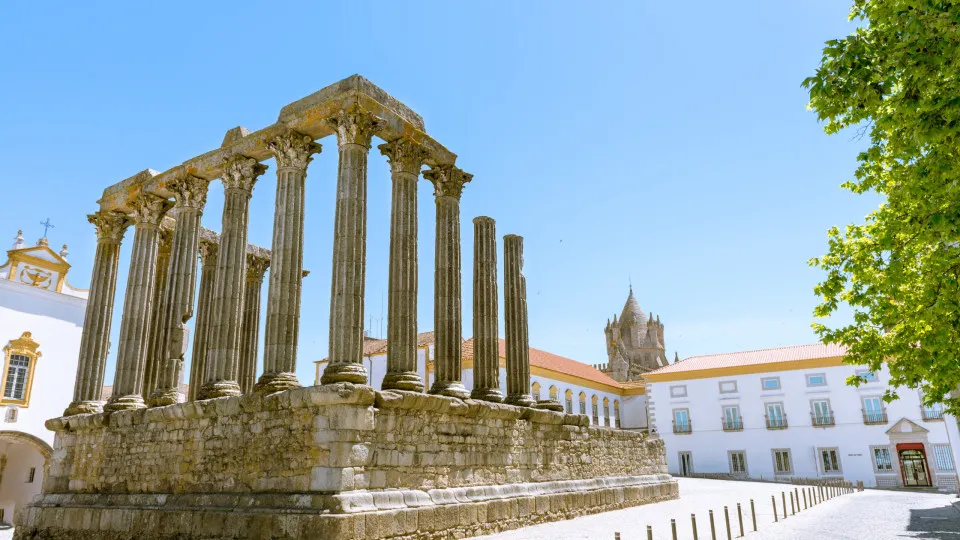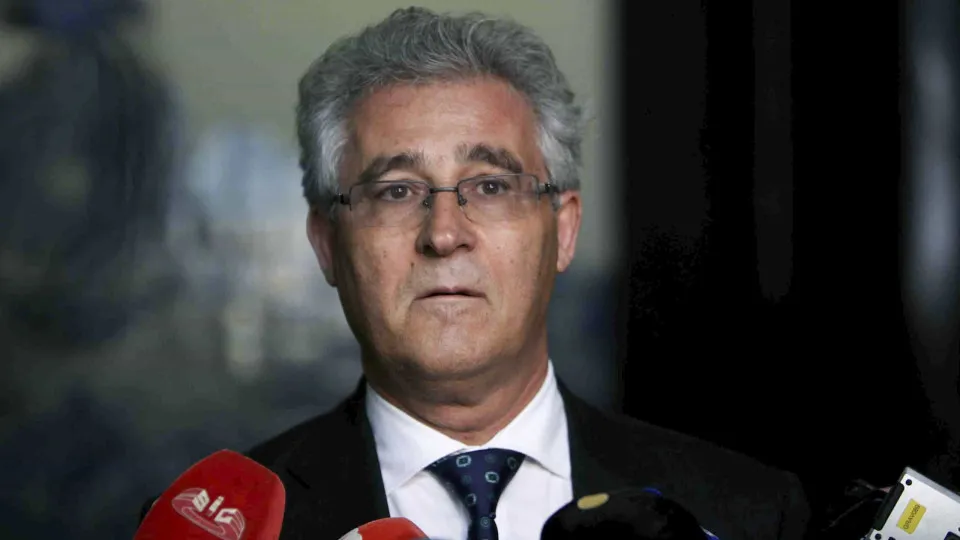
In the final morning session of the trial taking place at the Military Court of Lisbon, the panel of judges questioned Vaz das Neves about what the former appellate judge described as a “methodology” and common practice in the court, which he defended as being done “in good faith” and in the interest of the efficient operation of the courts.
In his initial statement to the court, Vaz das Neves described to the panel, led by councilor José Piedade, the manual process of case distribution, particularly the three cases in which the Public Ministry (PM) accuses him of committing a crime of corruption and two of abuse of power. The former judge noted that the draw was conducted in his office, in the presence of a vice-president of the Lisbon Court of Appeal (TRL) and the court secretary.
He stated that these draws were always conducted “in good faith, with no intention other than the court’s good functioning,” aiming to dispel doubts about the independence of judges who would decide on the cases, particularly former judge Rui Rangel. Judges from the TRL’s criminal forum were selected by the draw.
“I always refused to be a merely formal president [of the TRL],” said Vaz das Neves, defending his actions as being for the best functioning of the court and the justice system.
Rui Rangel and his section, the 9th, were excluded from the draw, which involved placing papers in a bag or tumbler and randomly selecting one. The objective was to prevent Rui Rangel – and other judges from his section, with whom he had close ties – from becoming the reporting judge in cases such as the one involving the businessman linked to Sport Lisboa and Benfica, José Veiga, with whom Rangel, a former presidential candidate for the club, had close relations.
The draws also excluded judges from the 5th section and were only conducted among judges from the 3rd section. Vaz das Neves said this was common practice in these procedures, where by excluding one section, the draw was manually conducted only among judges from the next section.
Councilor Jorge Gonçalves questioned the rationale behind the decision to select only judges from the 3rd section, thus eliminating one-third of the criminal judges – those from the 5th section.
“I accept the observation, but it was always the methodology used by the court,” responded Vaz das Neves, adding, “it can be said it was the wrong methodology, but it was the practice.”
Councilor Ernesto Nascimento also questioned the exclusion of some judges and why Vaz das Neves preempted legal mechanisms to avoid conflicts, suggesting Rui Rangel could have recused himself.
After being asked whether in doing so, he diminished the competencies of the judges, he was advised by his lawyer, Miguel Matias, not to answer.
Previously, during Vaz das Neves’ statements where he repeatedly claimed that the manual distribution of cases was not intended to favor third parties, as claimed by the PM, the presiding judge queried him about a text message from Rui Rangel containing only the case number related to José Veiga.
Vaz das Neves later referred to the message, stating he never received it and was unaware of whether it was ever sent or its intentions, adding later, “I have no doubt” that the panel deciding the case acted “honestly” and “with complete impartiality.”
Throughout the morning, the former TRL president insisted that no crime could be attributed to him for the way cases were distributed, even citing a lack of legal provisions on the matter, asserting there is no connection between the act of distribution and the act of judging, thus no potential for favoritism or advantage as alleged.
“If that were true, we would face the dire situation of calling justice into question,” he said, adding that none of the judges involved in the decisions under investigation are defendants.
He also argued in his defense that manual distribution was common in other courts as well, validated in a 2020 report approved by the Superior Council of Magistracy (CSM), which found no faults or illegality.
He further relied on the CSM to defend his integrity, noting that the disciplinary proceedings he faced related to the same facts underlying the current trial concluded there was no advantage gained.
The Operation Lex case became public on January 30, 2018, with five arrests and over 30 searches, originating from documentation extracted from the Operation Atlantic Route case, which involved football executive José Veiga, suspected of crimes of corruption in international commerce, money laundering, tax fraud, and influence peddling.
Alongside Luis Vaz das Neves, Rui Rangel, and José Veiga, the former judge Fatima Galante and former Benfica president Luís Filipe Vieira are also defendants, totaling 16 defendants.

